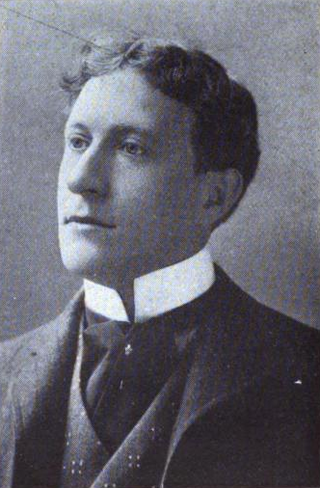
James Michael Curley was an American Democratic politician from Boston,Massachusetts. He served four terms as mayor of Boston between 1914 and 1955. Curley ran for mayor in every election for which he was legally qualified. He was twice convicted of criminal behavior and notably served time in prison during his last term as mayor. He also served a single term as governor of Massachusetts. He is remembered as one of the most colorful figures in Massachusetts politics.

John Bernard Hynes,was an American politician who served as the mayor of Boston from 1950 to 1960.

John Austin Keliher was a U.S. Democratic politician.

Robert Tyng Bushnell was an American politician who served as Massachusetts Attorney General from 1941 to 1945.

Gerald F. "Gerry" O’Leary was an American politician from South Boston,Massachusetts.
Oliver "Ollie" Bridge Garrett was the leader of the Boston Police Department's liquor raiding unit during Prohibition. On a police salary of $40.36 a week,Garrett managed to bank more than $122,000,owned a $70,000 farm,a Boston town house,and several cars. In May 1930,he pleaded guilty to charges of extortion and sentenced to two years in Deer Island Prison.

Joseph A. Langone Jr. (1896–1960) was a Massachusetts state senator from 1933 to 1940,and was Boston Election Commissioner in the 1940s.

Daniel Henry Coakley was an American Democratic politician and attorney from Massachusetts. He was a key figure in early 20th century Boston politics,as an ally to District Attorney Joseph C. Pelletier and as an on-again-off-again ally to Mayor James Michael Curley. As an attorney,Coakley took part in numerous badger game extortion schemes and was disbarred in 1922 for deceit,malpractice,and gross misconduct.
James E. Agnew was an American politician who served as a Boston City Councilor,Massachusetts Fish and Game Commissioner,and Corporation Counsel of Boston.

Michael Paul Feeney was an American politician who served in the Massachusetts House of Representatives from 1939 to 1981.
The Boston mayoral election of 1925 occurred on Tuesday,November 3,1925. Malcolm Nichols,a former member of the Massachusetts House of Representatives and Massachusetts Senate,defeated nine other candidates to be elected mayor.
The Boston mayoral election of 1914 occurred on Tuesday,January 13,1914. James Michael Curley,member of the United States House of Representatives,was elected Mayor of Boston for the first time,defeating Thomas J. Kenny,president of the Boston City Council.
Charles H. Reardon is a former American penal official who served as sheriff of Essex County,Massachusetts from 1978 to 1996.
Frederick Richard Sullivan was an American politician who served as sheriff of Suffolk County,Massachusetts from 1939 to 1968.
John B. Kelly was an American politician who served as a member of the Boston City Council from 1937 to 1947 and was the council president from 1946 to 1947.

Edward Christopher Carroll (1893–1969) was an American politician who served in the Massachusetts Senate from 1933 to 1938.
James M. O'Brien (1890–1958) was an American politician who served as mayor of Revere,Massachusetts.

John Patrick Connolly was an American politician who served as clerk of the Suffolk Superior Court of Civil Business from 1936 to 1939. He was convicted of bribery in 1941 for receiving kickbacks from court employees. He later returned to elected office as a Boston City Councilor

Thomas Joseph Hannon was an American politician who served as a member of the Massachusetts House of Representatives from 1935 to 1941 and from 1955 to 1957 and the Boston City Council from 1942 to 1952.












